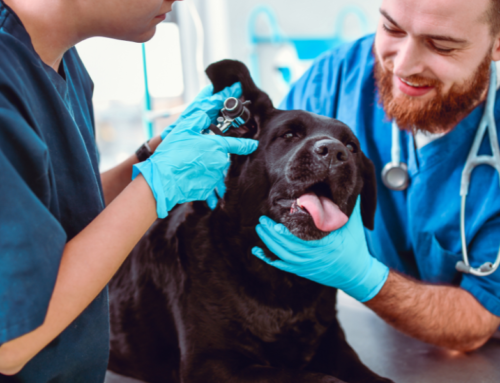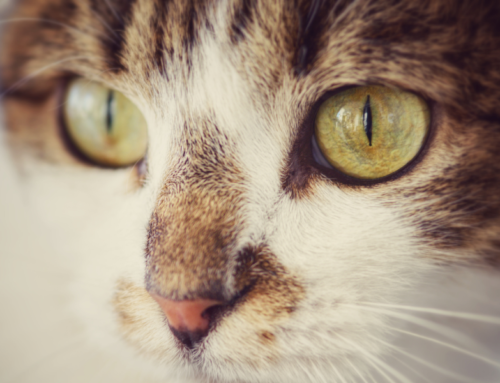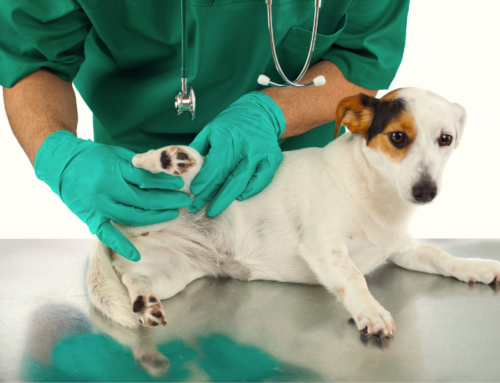It’s that time of year when love and joy are in the air, but, unfortunately, so is the flu! Most humans know how to protect themselves against these seasonal “achoos” by practicing good hygiene and taking vitamin C. But when it comes to your sweet furbaby, how much do you know about their immune system and the most effective ways to care for it? Dogs and cats, while they have stronger constitutions than us in many ways, are still prone to illnesses during the cold winter months. At Pine Valley Animal Hospital, our ultimate goal is to keep your pet happy and healthy through all seasons of the year. To do so, we need your help with your pet’s preventative care — and that starts at home. Follow our expert tips below to boost your pet’s immune system and enhance their well-being all year long.
Diet
Same as humans, a well-balanced diet is everything when it comes to keeping your pet healthy. Immune systems are rooted in the digestive tract and fueled by the nutrition we consume. Therefore, a happy gut leads to a strong and playful pet!
It’s all in their daily meals. The best diet you can feed your furbaby is balanced, fresh or low-processed, and contains species-appropriate ingredients. Most commercial pet foods are heavily processed and ridden with high levels of carbohydrates, fillers, and preservatives. These ingredients are proven to alter the gut microbiome, cause inflammation, and compromise your pet’s immunity. Our expert tip: swap the generic brands for a specialty diet that’s designed with your pet’s health and needs at heart, such as Hill’s Prescription Diet, Royal Canin, and all others available for purchase in our online store.
Vitamins and minerals are essential. A daily intake of nutrient-rich supplements and foods works wonders for your pet’s well-being. We recommend including these vitamins and minerals in your furbaby’s everyday diet:
- Antioxidants. Antioxidant-rich foods, such as berries, broccoli, potatoes, and cooked beans, are excellent ingredients to add to your pet’s daily meals. They are proven to alleviate some of the burden on your pet’s immune system and benefit their health and well-being.
- Trace minerals, such as in the form of kelp or seaweed powder. Trace minerals, including magnesium, selenium, zinc, potassium, and iodine, are typically deficient in all diets, yet are essential to maintaining immune, endocrine, and digestive health.
- Digestive enzyme supplement. Long before modern-day amenities and pet pampering, dogs and cats we wild creatures, living off of raw, fresh foods. Today’s processed, commercial diets cook their feed at high temperatures that destroy essential nutrients and enzymes. Try adding a digestive enzyme to your pet’s diet to improve their digestion and gut health.
- Bovine Colostrum is a natural and powerful food that helps heal your pet’s gut and enhances their immune system and all other bodily processes.
- Medicinal Mushroom Supplement. Mushrooms such as Reishi, Shitake, Maitake, Cordyceps, Turkey Tail, and Lion’s Mane are known as “superfood” supplements and are proven to provide numerous health benefits to humans and pets alike.
Daily Habits
Aside from a nutrient-rich diet, practicing these everyday habits will immensely benefit your pet’s well-being and strengthen their immunity.
Daily Exercise: Just like in humans, consistent exercise is essential for maintaining a healthy immune system. Daily cardiovascular exercise, such as long walks or indoor play, improves the circulation of lymph fluids throughout their bodies and strengthens the lymphatic system. This works to expel viruses, pathogens, and harmful bacteria, improving your pet’s overall health and well-being.
Limit outdoor time in the winter: Don’t let the thick, fluffy coat fool you. Most dog and cat breeds aren’t meant to endure the cold for extended periods of time. Frigid temperatures and winter winds are strenuous on their bodies, reducing their immune system’s ability to fight against viruses and pathogens. For outdoor bathroom breaks – keep them brief and let your pet back inside as soon as they’ve finished. For walks and exercise – break up long walks into several shorter ones to avoid prolonged exposure to the cold.
Clean their living space: Toys, bedding, and food bowls are breeding grounds for harmful bacteria, so keeping your pet’s living space and items clean makes all the difference for their health. Toss plushies in the washer and wash food bowls and hard toys with warm water and nontoxic dish soap. Once finished, make sure everything is completely dry to avoid mold growth.
Minimize stress: Stress is a proven immune system depleter. Chronic, ongoing stress harms the body both psychologically and physically, making it difficult for vital systems, like the immune system, to function properly. To help keep your pet relaxed and stress-free this winter, learn the triggers that put your cat or dog in distress, and try to minimize those situations as much as possible.
Things To Avoid
Avoid over-vaccination. While annual vaccines are essential, over-vaccination can harm the immune system. The best vaccination practices for your dog or cat are determined by their age, lifestyle, and geographical location. Our skilled veterinarians, Dr. Tarter and Dr. Lantzer, will help develop a care plan that’s just right for your precious furbaby. Give us a call or chat with us during your next visit for more information.
Avoid overuse of medications. Antibiotics, antacids, and pain medicine work well in limited doses, but overuse can deplete the immune system and lead to health problems. At Pine Valley, we incorporate a holistic approach in our treatment plans to create the perfect balance of preventative care, medicine dosage, and aftercare.
While immune health should always be a priority, it’s especially important during colder weather and chilly seasons. A balanced diet rich with vitamins, daily exercise, and limited exposure to the outdoors are all steps you can take to keep your furbaby active and strong all winter long. And at Pine Valley, a healthy and happy pet is what we love to see!






